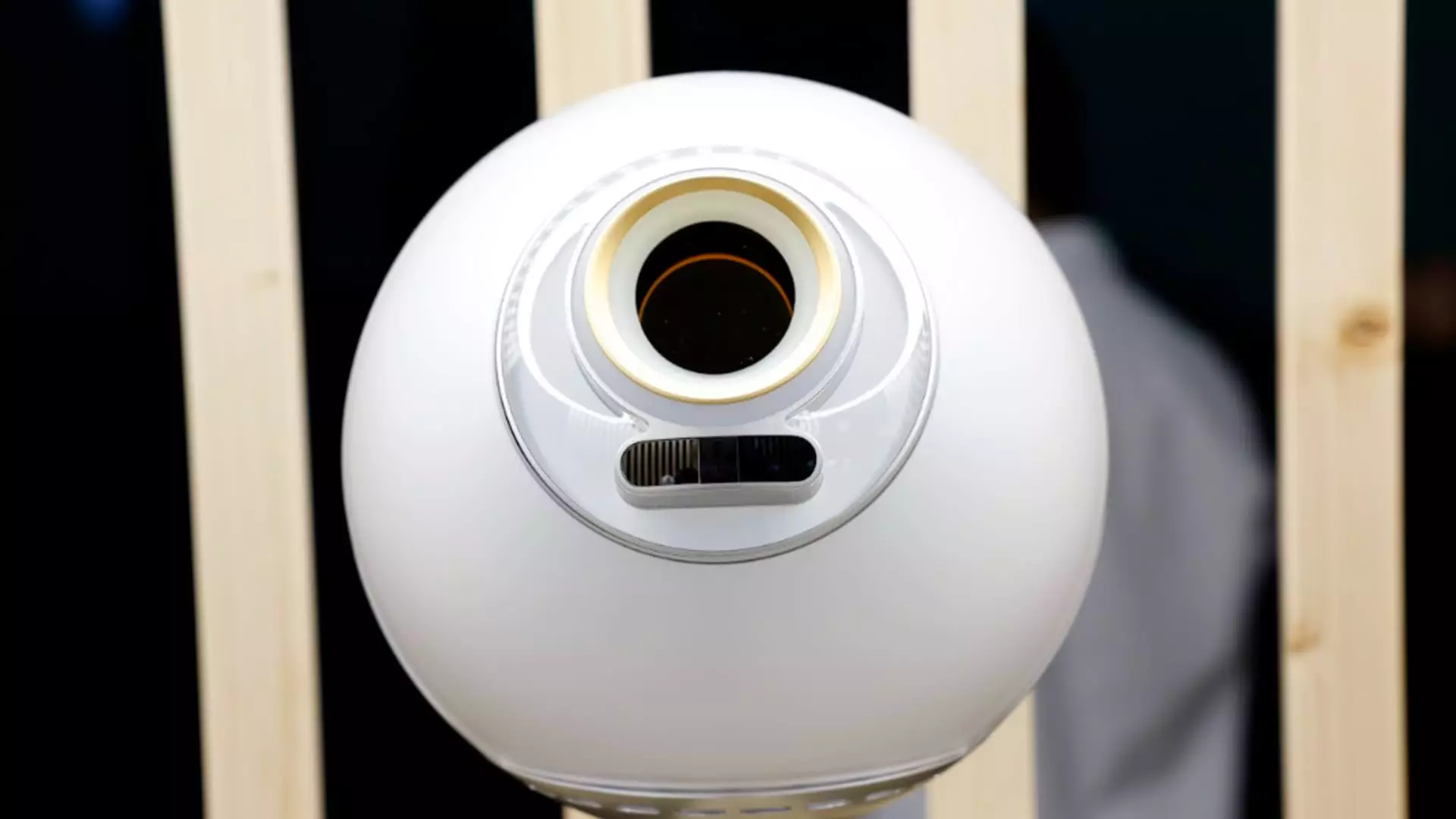In a groundbreaking move, World, a biometric identity verification initiative co-founded by visionary Sam Altman, is set to make waves in the U.K. starting this week. Launching in London, and with plans to expand to key cities such as Manchester, Birmingham, Cardiff, Belfast, and Glasgow, World represents a significant leap in identity authentication technology. The project’s core offering is an innovative device called the Orb, which utilizes advanced eye-scanning technology to authenticate individuals. This change not only aims to secure identities but also seeks to combat the growing concerns surrounding the misuse of artificial intelligence systems, including deep fakes.
The Orb: A Technological Marvel
Central to World’s operation is the Orb, a spherical device that scans users’ irises and facial features to create a unique biometric code. This technology distinguishes real human beings from artificial agents, effectively bridging the gap between digital and physical identities. Once a person’s unique iris code is established, they receive World’s cryptocurrency, WLD, and are assigned an anonymous identifier called World ID, which can facilitate secure log-ins across various popular platforms like Minecraft, Reddit, and Discord.
What stands out about the Orb is not just its innovative technology, but rather its potential impact on combating identity fraud, a pressing issue in a world increasingly susceptible to advanced AI threats. In an information-rich age, the need for secure verification methods grows more acute, which is exactly what World sets out to provide.
Demand from Enterprises and Governments
The authenticity of World’s vision is reinforced by the significant interest it has garnered from both business and government sectors. Adrian Ludwig, chief architect of Tools for Humanity—a key player in the World initiative—highlighted that there is a palpable demand from enterprises and regulatory bodies. As the threat of AI-generated fraud becomes more pronounced—affecting industries from banking to online gaming—World’s robust identity verification measures are poised to become essential protections. Ludwig’s observation that the transition from theoretical concepts to tangible applications is now crucial underlines the urgency with which this technology is needed.
Privacy Concerns Take Center Stage
Despite the promise of enhanced security, World faces scrutiny regarding privacy implications. The project initially launched as Worldcoin in 2021, a period which saw an unwelcome spotlight on data privacy issues worldwide. In response to these valid concerns, World aims to assuage fears by emphasizing that the biometric data collected is encrypted and the original data is purged after use. Notably, World’s verification system relies on a decentralized framework, which leans on users’ smartphones for identity checks rather than a centralized cloud-based structure. This aspect is crucial as data breaches become increasingly common in a digital landscape dominated by massive social platforms.
Nonetheless, reality paints a more complex picture. As World scales its operations, ensuring the privacy of billions of users remains a daunting challenge—the kind that giant tech companies grapple with daily. Ludwig remains optimistic, asserting that World’s model can handle extensive user networks while still processing data locally on devices for security. Yet, the scalability of such a system in a world of ever-evolving AI capabilities raises necessary questions about its efficacy and reliability.
Government Engagement and Future Outlook
Ludwig notes that government interest in improving identity infrastructures is growing, with initiatives increasingly focused on reducing fraud, thereby making World an appealing prospect for regulatory discussions. The historical failures of existing digital identity systems, such as India’s Aadhaar, which has faced criticism for data security issues and social inequality, underscore the level of caution required in such undertakings. Each country is seeking a practical solution while navigating the complexities of privacy, security, and efficacy.
In ongoing conversations with regulators, Ludwig emphasizes the importance of transparency, stating that World is committed to addressing concerns related to privacy and operational risks effectively. The ongoing dialogue is not merely about compliance; it is about shaping a secure and trusted digital identity landscape that accommodates both public interest and technological innovation.
The landscape of digital identity verification is shifting, and World, with the capacity to authenticate identities through advanced biometric technology, is well-positioned to lead this change. As we inevitably integrate more digital processes into our everyday lives, initiatives like World will likely transform how we perceive identity, security, and the authentic self in a world increasingly inundated with digital facades.

